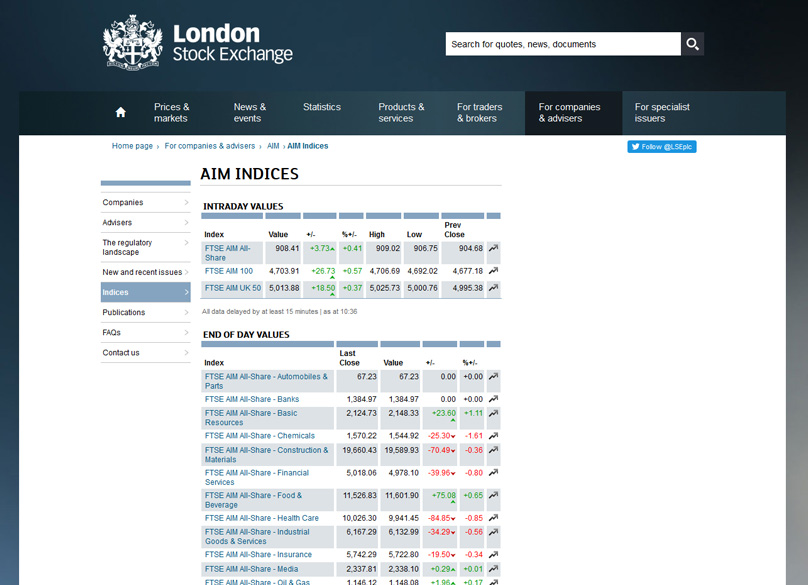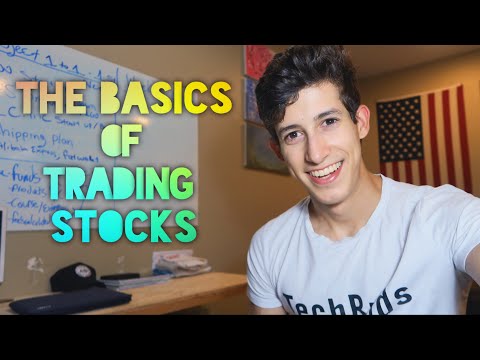What is Trading Psychology: State of Mind for Success

Improving and developing a healthy psychology of trading is all about experience, self-reflection and humility. As with learning anything new, you will go through the process of knowing nothing, thinking you know everything, realizing you know nothing, then finally learning, and getting to know something. Avoiding and controlling fear in trading are imperative as fear can make a trader sell prematurely, resulting in loss of earning opportunity or even worse, realized losses.
- Trading psychology can be as important as other attributes such as knowledge, experience, and skill in determining trading success.
- It involves examining the impact of emotions, cognitive biases, self-control, discipline, and mental states on trading outcomes.
- Indeed, the principles of market psychology underlie the motivations behind technical analysis, a trading strategy that identifies opportunities by analyzing historical price and volume trends.
- StocksToTrade was created for traders, by traders.
- Even though there is no guarantee of success, any edge helps.
Trading psychology refers to the emotions and mental state that help dictate success or failure in trading securities. Trading psychology represents various aspects of an individual’s character and behaviors that influence their trading actions. Trading psychology can be as important as other attributes such as knowledge, experience, and skill in determining trading success. Armed with the above https://1investing.in/ realization, knowledge, and experience, the trader will start to carry out trades differently. He will be patient, not ape-ing into every coin, taking on unnecessarily risky trades and giving in to the FOMO monster. At this stage, the novice trader will buy all the best trading books and trading psychology books, listen to podcasts and YouTubers, and maybe even consult some professional coaches.
In the dynamic realm of forex trading, currencies often go by intriguing nicknames that reflect their historical, cultural, or economic significance. Understanding these popular currency nicknames not only adds a touch of flair to your trading knowledge but also provides insights into the stories behind the market’s most traded pairs. Embark on a journey through the dynamic worlds of forex and gold trading, where losses are an inevitable chapter in the story of success! A good measure of volatility can be seen in market sentiment which is a tool used to measure how investors perceive a market at a given time. When traders perceive the market as bearish, there will be more sellers than buyers in the market which means that crowd psychology is negative. Some cognitive biases that traders face include confirmation bias, illusion of control bias, hindsight bias, availability bias as well as anchoring and adjustment bias.
How to Develop and Improve Trading Psychology
Up to this point, we had executed our trading plan flawlessly. Chances are that if your equity curve isn’t a slow and steady march higher, you’re struggling with risk management. Every time you have a big win, you risk more and take a big loss. The longer you play this game, the more you’ll realize that your analysis does not exist anywhere else but in your head. The only reason the market responds to your analysis is based on whether or not the other active traders who can influence the move of your stock are on the same page.
Those who trade not to lose hold themselves back from achieving this as they are focusing on the wrong outcome. They will open a few trades, have a degree of success that spurs them to open a live trading account, and invariably lose all their money. They jumped in not knowing that they knew nothing about trading. Trading financial sector meaning psychology is the study of emotions when trading–with a focus on controlling one’s emotions for better success. Open interest is another major indicator of crowd psychology. Open interest applies to the futures market and refers to a reading of future contracts or options expiring at a certain time in the future.
The Cryptocurrency Market Crash: What the DOGE Creator Says … – BTC Peers
The Cryptocurrency Market Crash: What the DOGE Creator Says ….
Posted: Tue, 12 Sep 2023 17:23:38 GMT [source]
Trading psychology is a broad term that includes all the emotions and feelings that a typical trader will encounter when trading. Some of these emotions are helpful and should be embraced while others like fear, greed, nervousness and anxiety should be contained. The psychology of trading is complex and takes time to fully master. You might even open a succession of new positions in the belief that none of them will fail because today is ‘your day’ on the markets.
The best traders accept that losing is inevitable. You can have losing trades and still be a profitable trader if you keep your losses small. Using real money can set your trading emotions on fire! You might panic and exit a position too early when one of your holdings starts to drop … Then curse yourself when it bounces back to your initial goal a few hours later. By the way, paper trading isn’t just for beginners. It’s a handy tool to return to as your skills change and grow.
Fear and greed play an important role in a trader’s overall strategy, and understanding how to control the emotions is essential in becoming a successful trader. The best traders are those that take their losses and use them as learning opportunities. Patience is integral to discipline and it is crucial that you have patience with your positions.
You want to keep your stop losses wide enough that a small dip won’t kick you out of a position. A stop loss also needs to be tight enough so you immediately sell when things don’t go as you expected. Learning day trading is as much about experience and practice as it is about skill and knowledge. But sometimes, we pin our pride on our ability to score big wins.
More often than not, new traders don’t know where to start. Most start out soaking up any information they can get. This information will come in the form of stock picks, books, seminars, trading coaches, gurus, you name it. Your personal beliefs, background and personality traits will then take that information and digest it into what you might call your foundation for trading.
Psychology Of Trading: The Thrill Of The Trade
Biases affect trading as they are, by definition, a predetermined personal disposition in favour of one thing over another. Here is where the trader, no longer a novice, will recognize that he will lose some and win some. He realizes that the trick is to manage one’s emotions and limit one’s risks to the level that he is comfortable with. To avoid and control fear, a trader must first understand that fear in trading is a natural reaction when faced with a threat to profit potential.
NZD/USD Price Analysis: Pair extends the winning streak, trades around 0.5930 – FXStreet
NZD/USD Price Analysis: Pair extends the winning streak, trades around 0.5930.
Posted: Mon, 11 Sep 2023 06:47:22 GMT [source]
Maybe you get lucky and your trade moves in the right direction. You scale in further and start to doubt your exit price. When a group of traders gets greedy, there can be a buying frenzy. When fear strikes, the trend can turn bearish fast once panic selling begins. Experiment with new ideas such as testing different stop-loss levels.
Open interest adds the total long and short contracts in the market on a given day, and the absolute value of open interest corresponds to a cumulative long or short position. Along with a routine, having a plan is crucial to trading. However, everyone’s trading plan will be different to some degree.
Mastering Trading Psychology: Overcoming Failures and Embracing
Greed is one of the most common emotions among traders and therefore, deserves special attention. When greed overpowers logic, traders tend to double down on losing trades or use excessive leverage in order recover previous losses. While it is easier said than done, it is crucial for traders to understand how to control greed when trading. Trading psychology is different for each trader, and it is influenced by the trader’s emotions and biases. The two main emotions that are likely to impact the success or failure of a trade are greed or fear. Technical analysis looks at price charts to find patterns that indicate trends and reversals.
- Study the results and gain an additional edge by knowing which ones work for you.
- He is known for breaking down the trading process into three categories that affect traders.
- Accepting that you will not always get it right will save you all sorts of time and money.
- Chances are that if your equity curve isn’t a slow and steady march higher, you’re struggling with risk management.
Traders need to be aware of their cognitive and emotional biases. Indeed, this psychological aspect of finance is important as these impacts on decisions ultimately affect trading and portfolio performance. Before investing in a stock, technology, or company, traders should devote enough time researching and reviewing the opportunities. They should be on top of the news, study charts, read trade journals, and perform industry analysis. If this is the case, it is important to keep these traits in check while you are actively trading because they can lead you to make rash and ill-advised decisions that have little analytical backing.
Key to Success for the Options Trader
For instance, a trading log can be used to record a time when you chose to cut your losses and the eventual price that the asset hit. By doing this, you can see if you made the right decision or not. Equally, it can be used to record when you accepted your winnings and if your emotions played a role in whether you chose to close that position too early or a little late.
Acting on emotions like fear can lead you to miss out on a profit by closing a position too early. Trust your analysis and remain patient and disciplined. Equally, when looking to enter a trade, it is important to be patient and wait for the opportune moment rather than just jumping into a trade right then and there. This can help minimise losses and limit the effect of emotions on your trading as the rules for opening or closing a position are already highlighted for you. Having a trading plan is paramount to ensuring that you achieve your goals.
They often occur unconsciously and can impact various aspects of decision-making, including perception, memory, attention, and problem-solving. 3) Do not trade for the sake of trading.You can only take what the market gives you. Some days you may place fifteen trades and in other instances you may not place a single trade for two weeks. It all depends what is happening in the market and whether trade set ups – that align with your strategy – appear in the market.
Try to approach the market with a positive, yet neutral, attitude. He also dives deep into the ways traders sabotage their best intentions. And he offers concrete ways for traders to transform fear of loss into a success mindset. It’s important to study the markets and create a trading plan.

A greed-inspired trade may involve buying stocks of untested companies because they are on the rise or buying shares of a company without understanding the underlying investment. Trading psychology refers to the mental state and emotions of a trader that determines the success or failure of a trade. It represents the aspects of a trader’s behavior and characteristics that influence the actions they take when trading securities. This information has been prepared by IG, a trading name of IG Markets Limited.
Never underestimate the force of stock market psychology. If you want to be a better trader, you need to master trading psychology. In the beginning, take your time to learn and absorb all the knowledge. Build a strong foundation that can be used later on in your trading career. A few months or years down the road, you will realized that…
Overcoming cognitive and emotional biases are challenging, but traders can employ several strategies to mitigate their impact and make more rational decisions. For example, the trader can commit specific trading durations every day, set profit targets, and set a stop loss to scrap emotions out of the process. When creating a trading plan, traders should consider specific factors such as emotions and biases that can affect their ability to stick to the plan. Improving your trading psychology can most easily be achieved by becoming aware of your own emotions, biases and personality traits. Once you have acknowledged these, you can put a trading plan in place that takes these factors into account with the hope of mitigating any effect that they might have on your decision making. The following article is an excerpt from Exness’ Psychology of Trading report, which examines the realities of making trading decisions under high-pressure, psychologically intense conditions.
Types of Biases that Impact Traders
An increase in volatility is usually followed by one of two emotions, fear or FOMO. Pessimism seems to have a greater impact on volatility than optimism does. An increase in fear will often lead to ‘panic selling’ where traders rush to exit trades in an attempt to avoid greater losses. Stock market psychology refers to the ability to identity and manage emotions and behaviors that may arise while trading. To mitigate biases, traders should be self aware, establish trading rules and stick to them, implement risk management techniques, and seek accountability and support from their peers and mentors. On the other hand, fear is the opposite of greed and the reason why people exit a trade prematurely or refrain from taking on risky positions due to concerns of incurring losses.

This website is neither a solicitation nor an offer to Buy/Sell futures or options. No representation is being made that any account will or is likely to achieve profits or losses similar to those discussed on this website. The past performance of any trading system or methodology is not necessarily indicative of future results.
